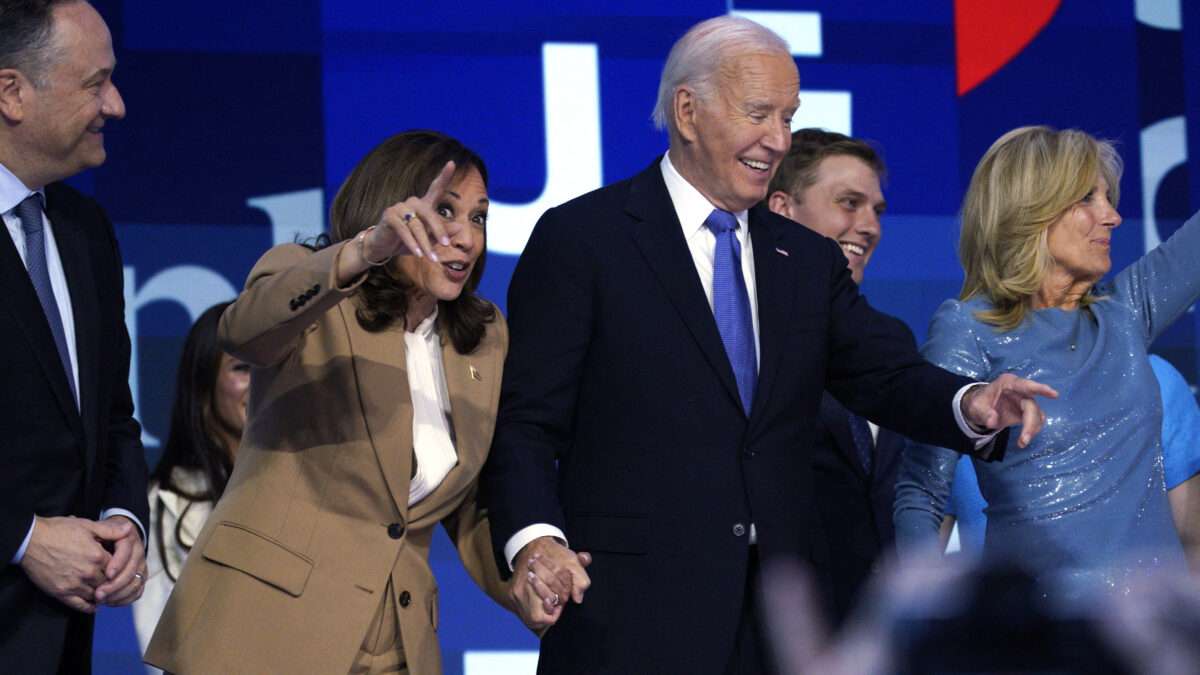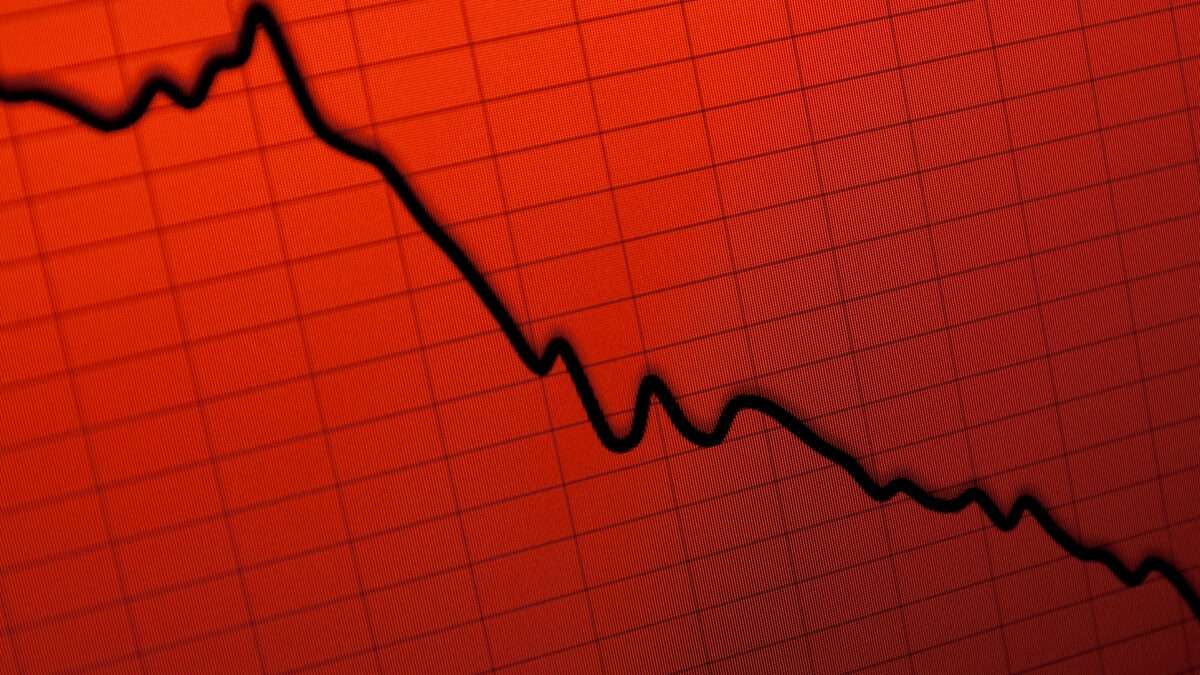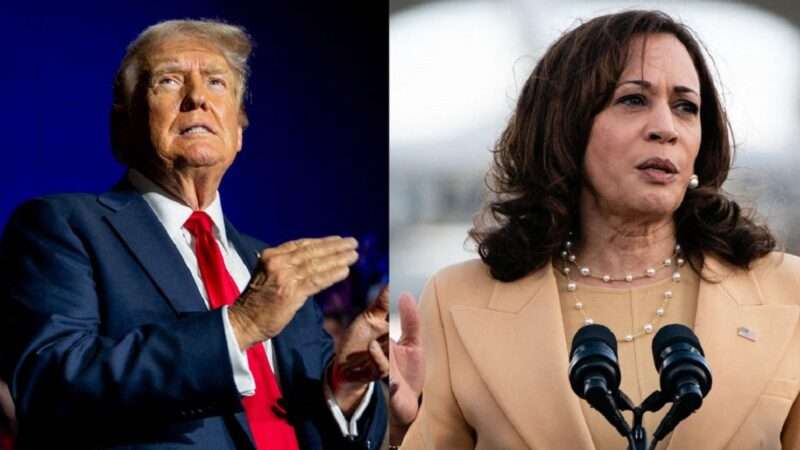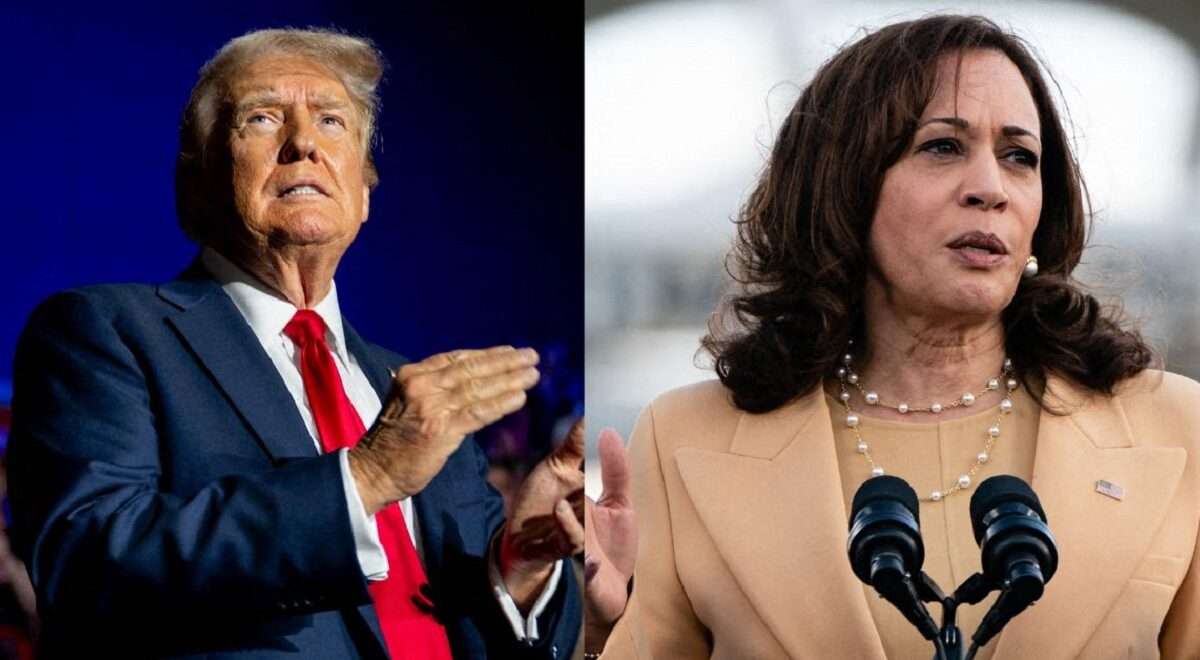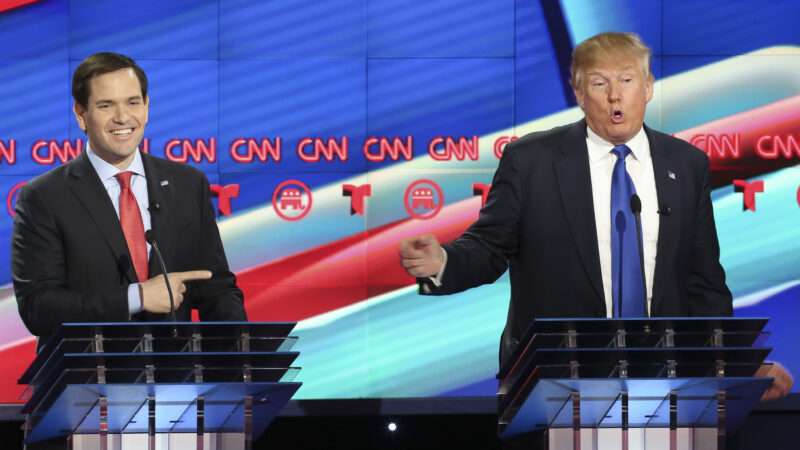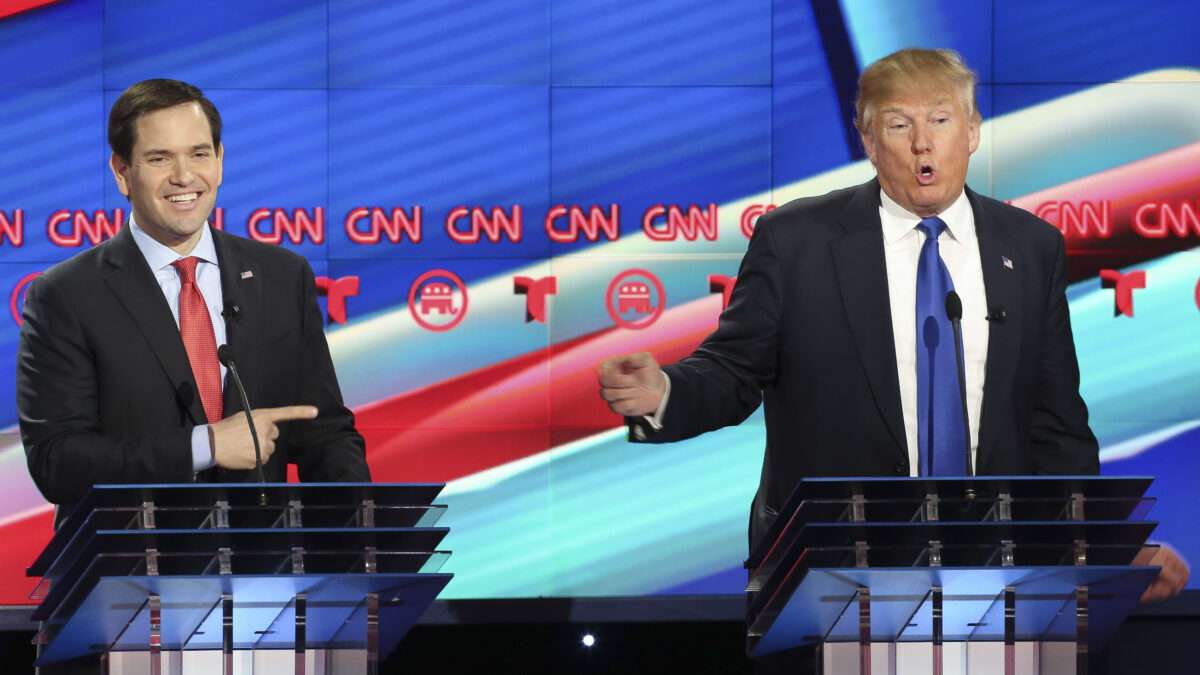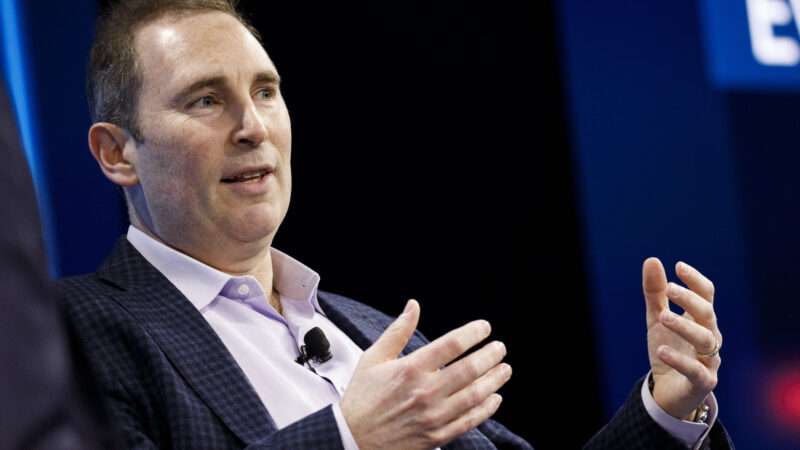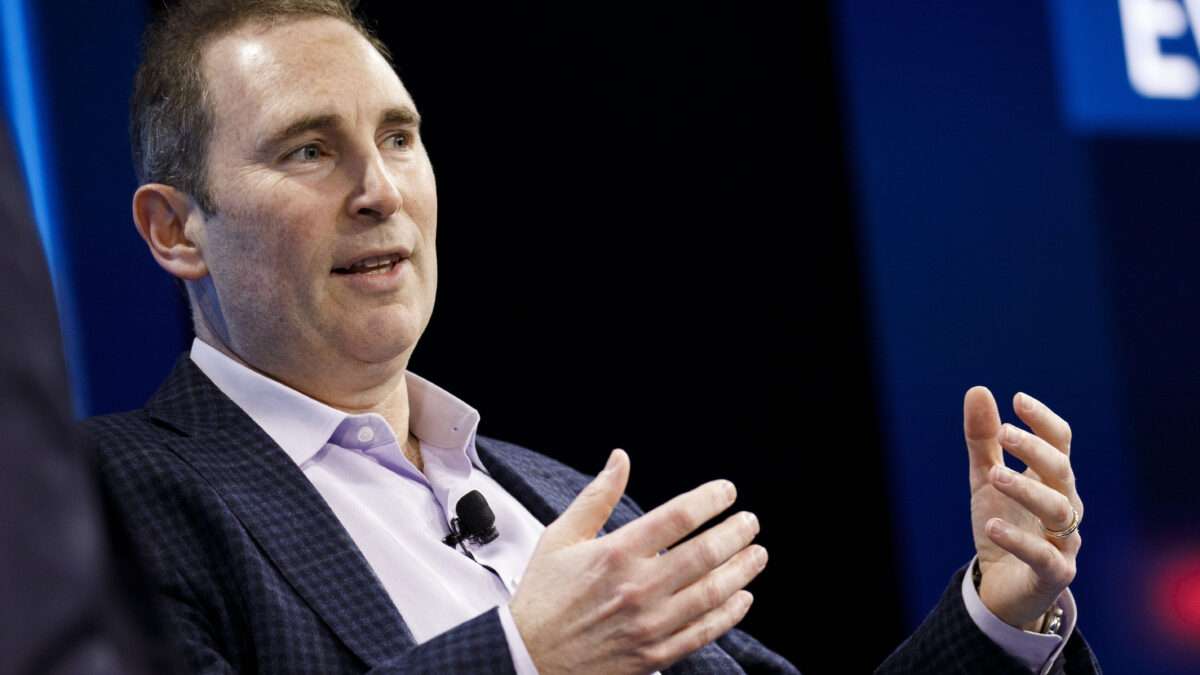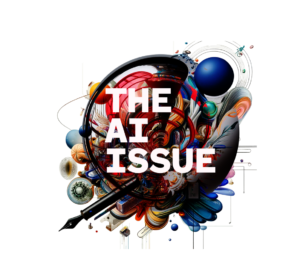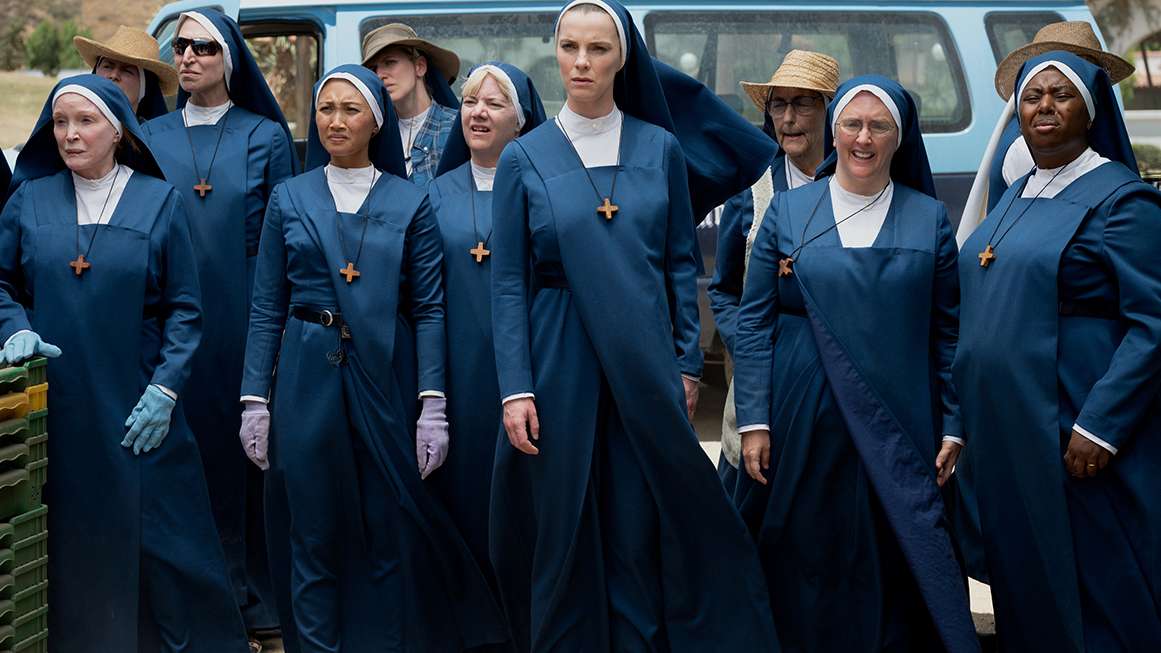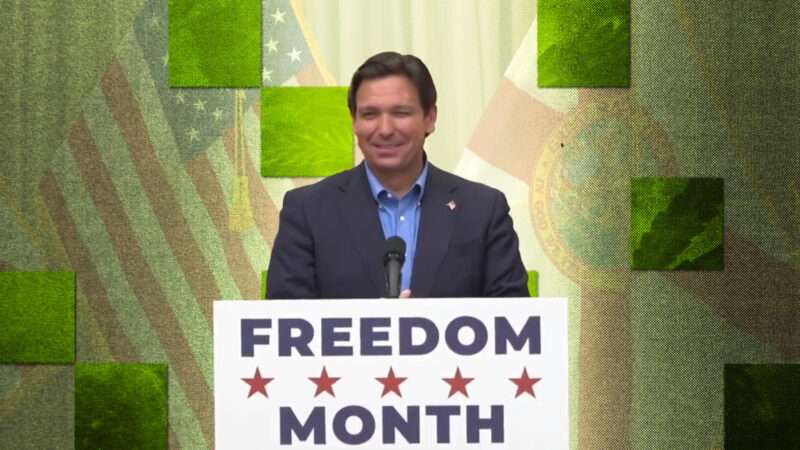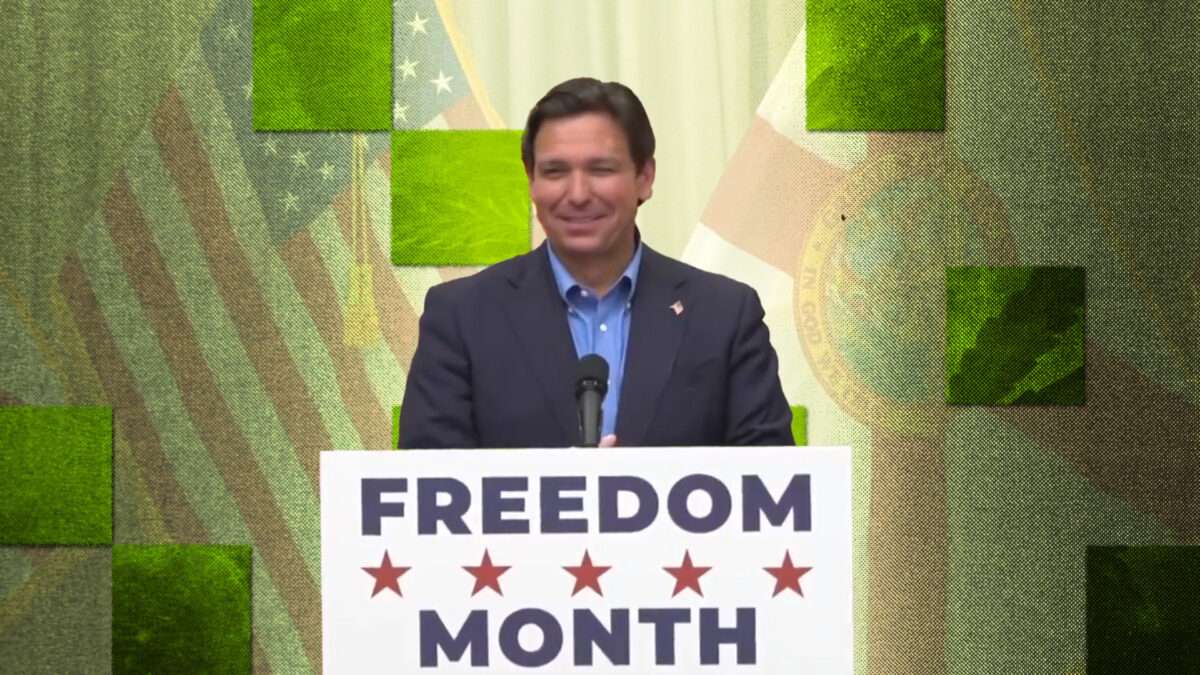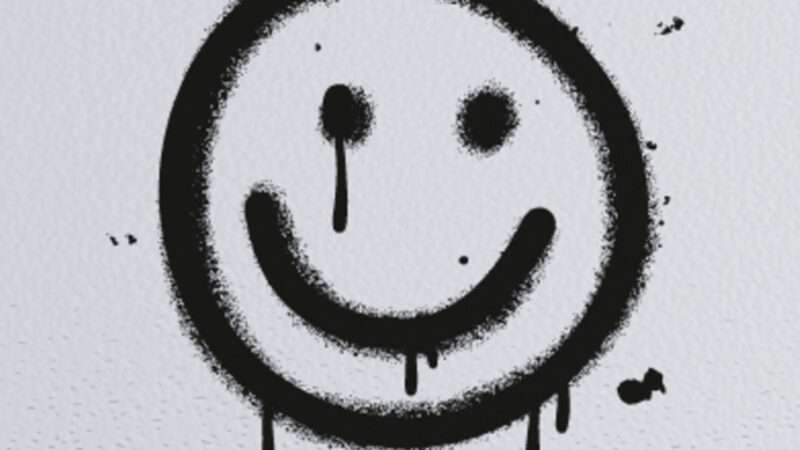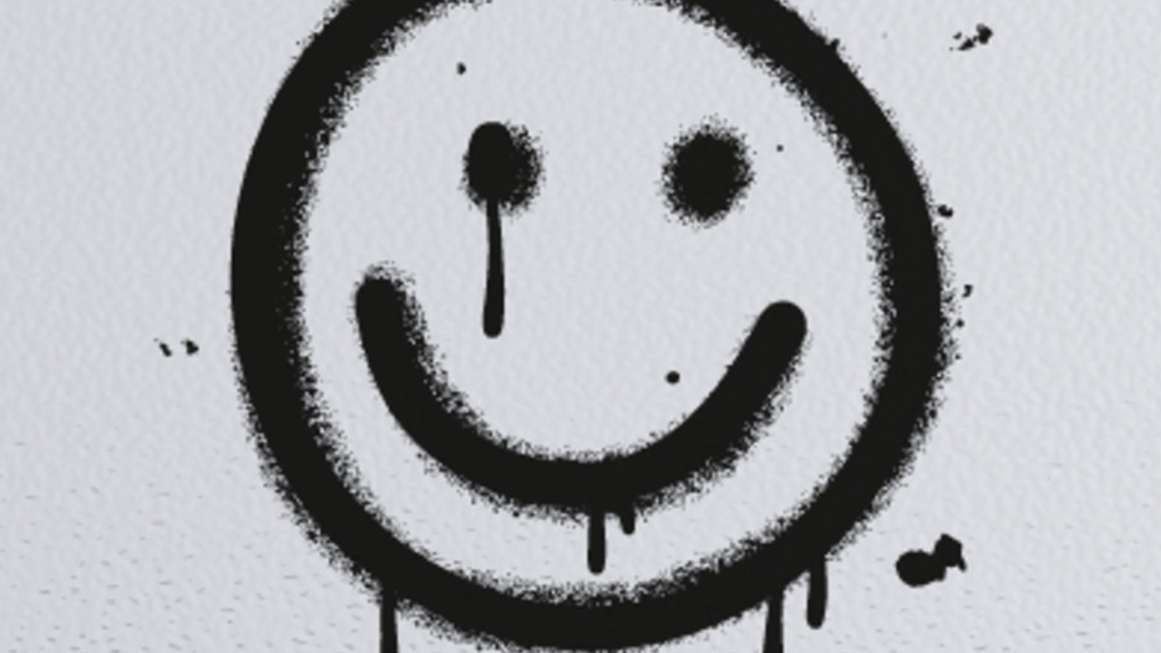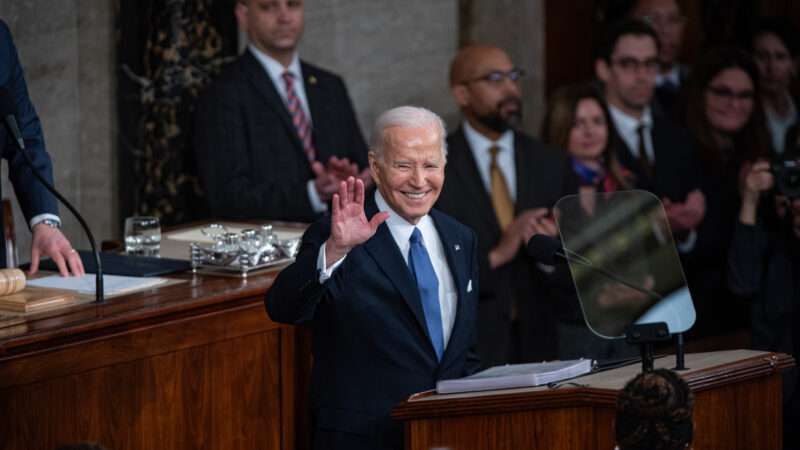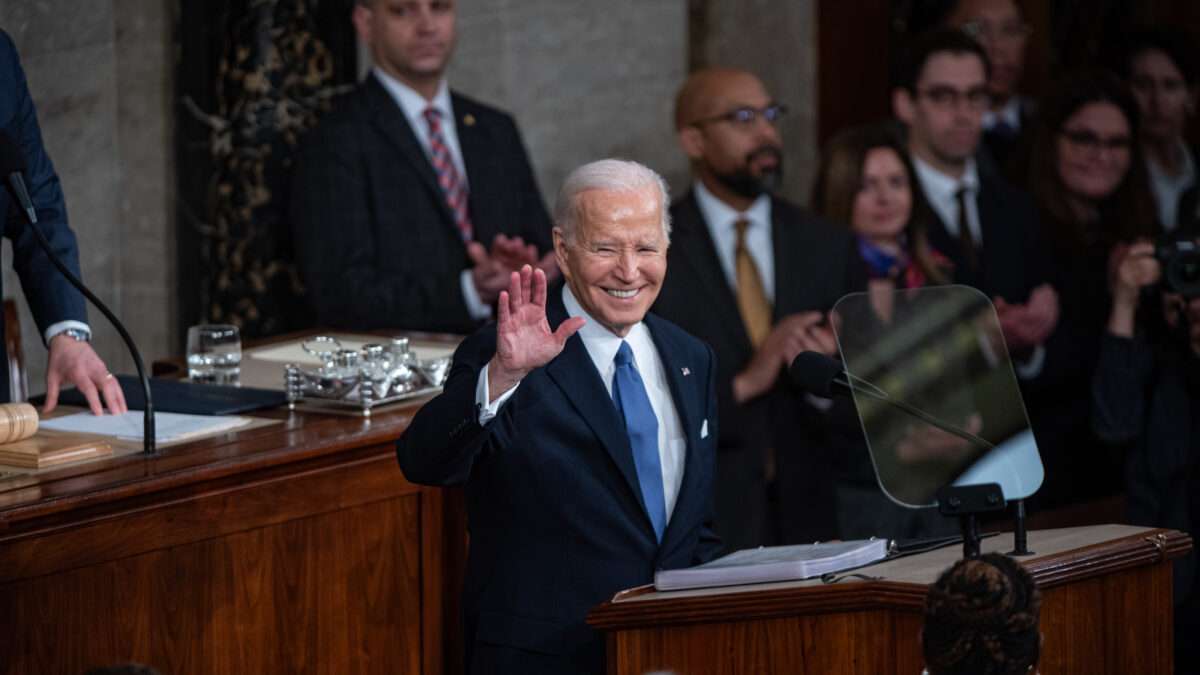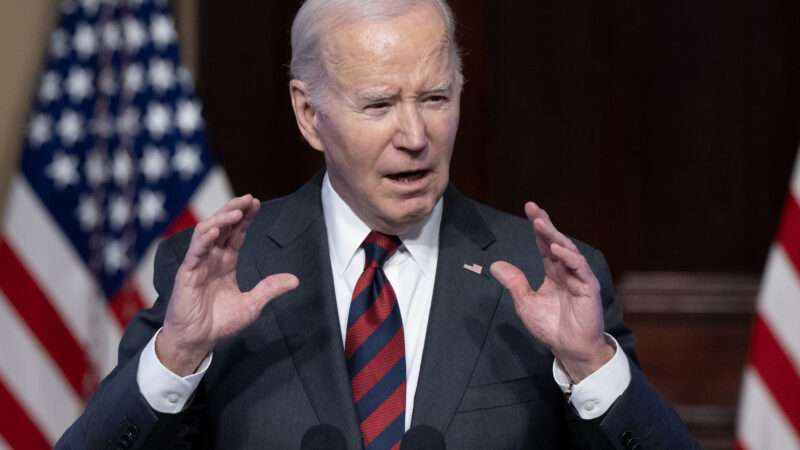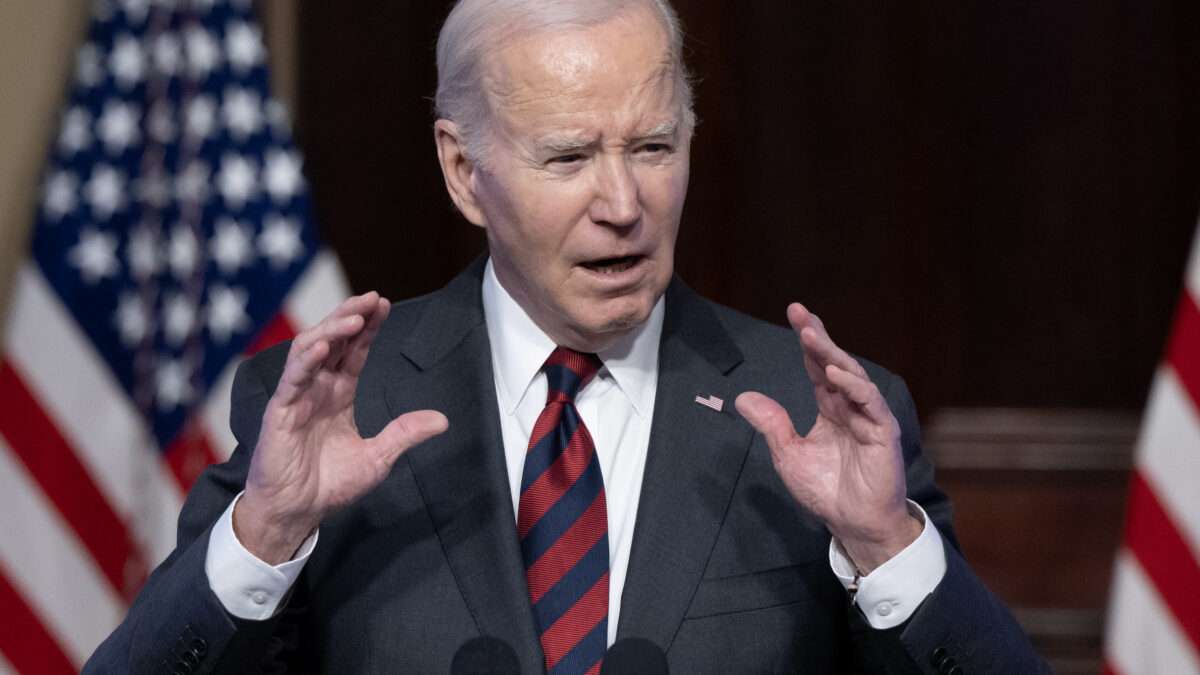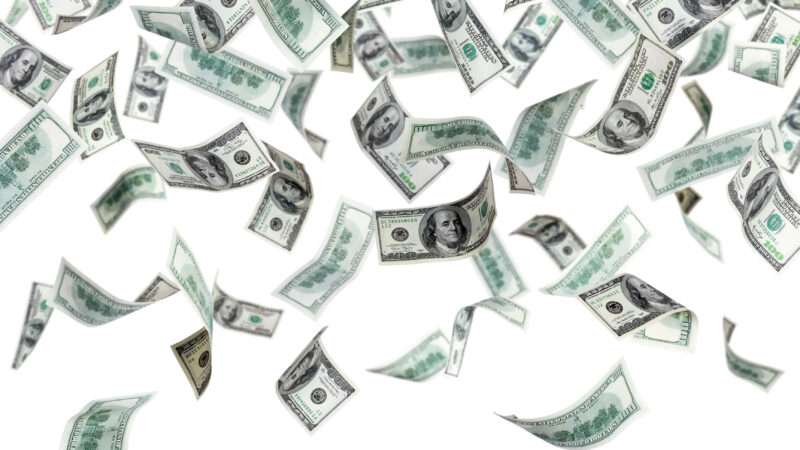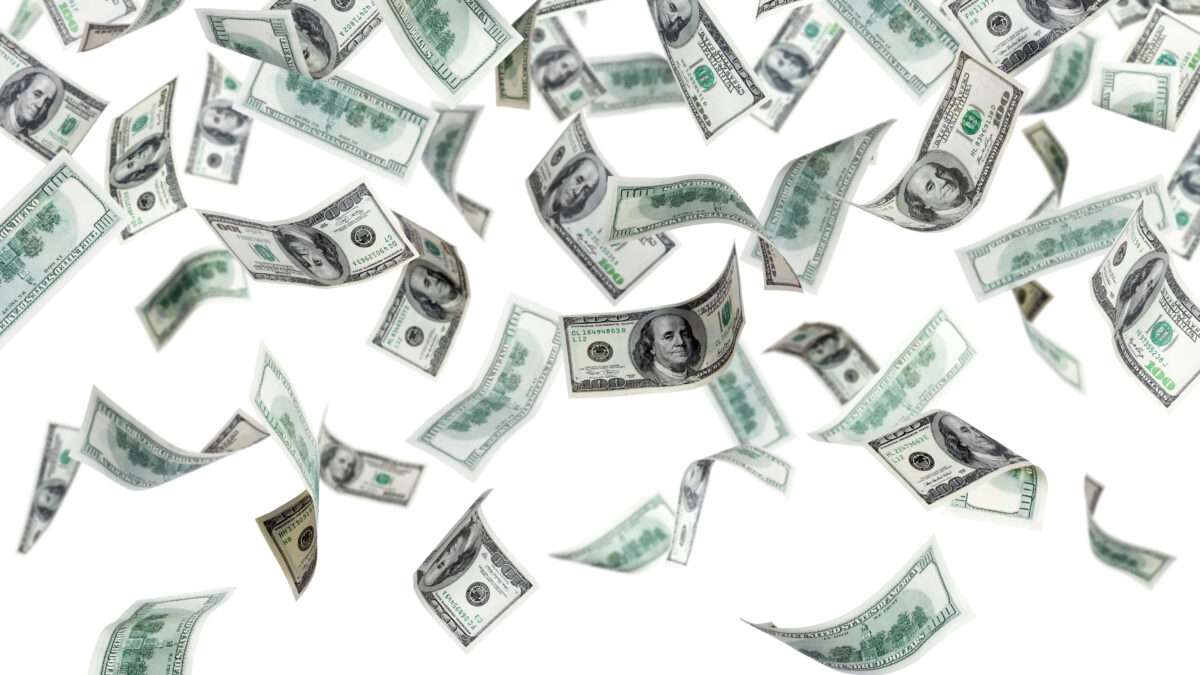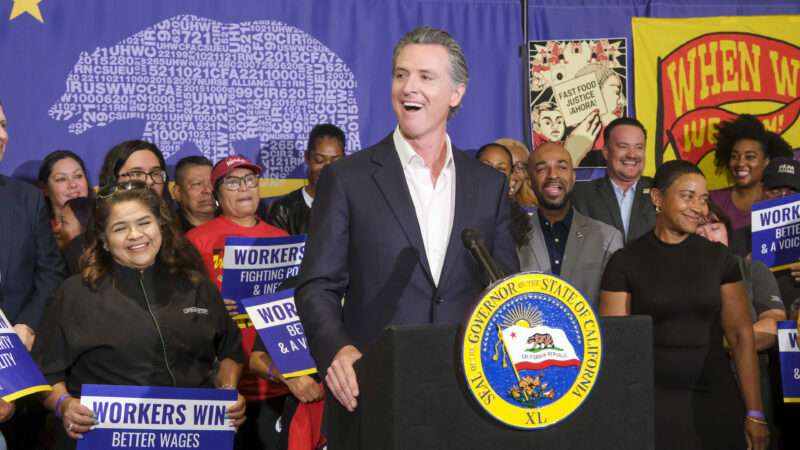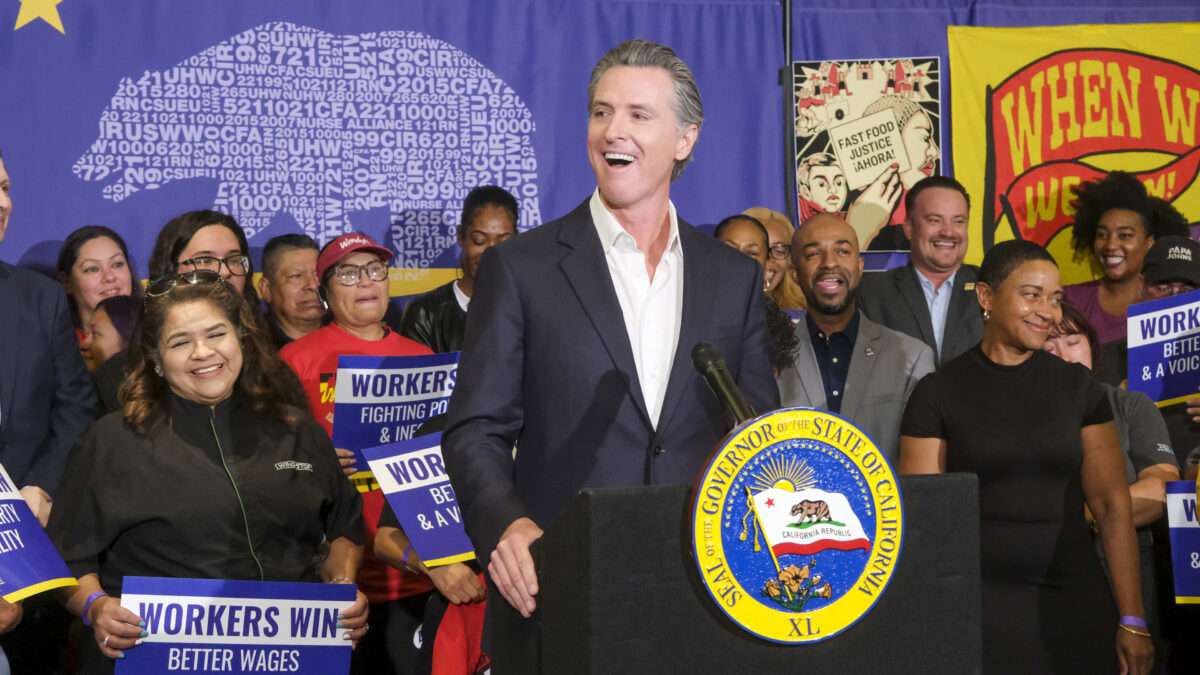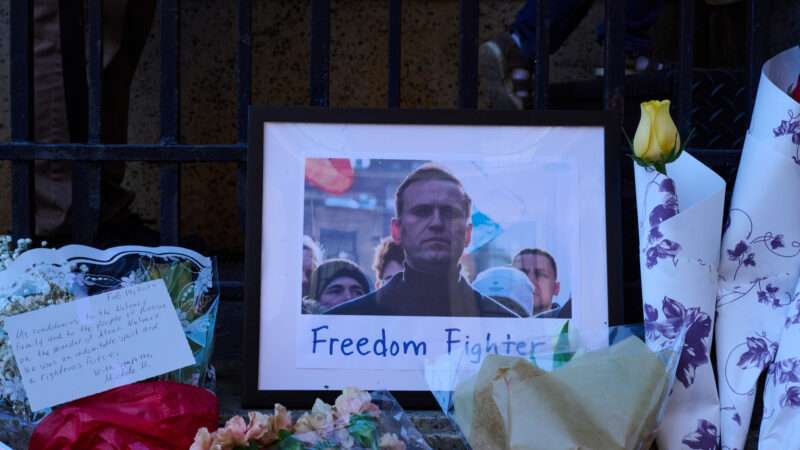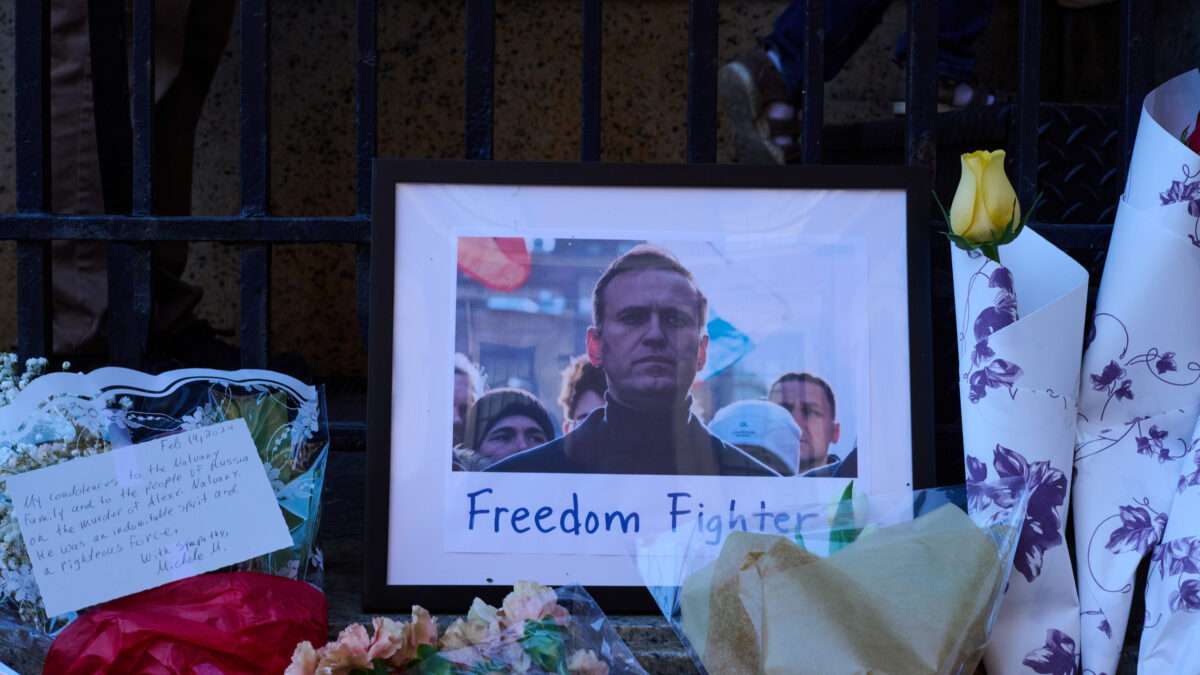If Joe Biden Saved the Economy, Why Do We Need Kamala Harris' Price Controls?
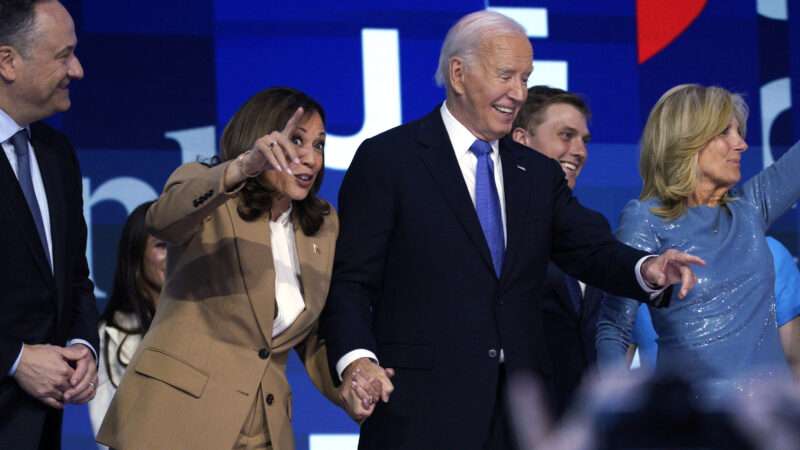
After all the talk of abortion rights, protecting democracy, and how "fun" Vice President Kamala Harris apparently is, the first night of the Democratic National Convention culminated with a celebration of President Joe Biden's four years in office.
Biden "recovered all those millions of jobs that [Donald] Trump watched slip away," Sen. Dick Durbin (D–Ill.) declared. Biden "rebuilt the economy" after the pandemic put it "flat on its back," intoned Sen. Chris Coons (D–Conn.), a longtime Biden stan.
Biden himself put the cherry on top. "We've had one of the most extraordinary four years of progress ever," the president said. "We gone from economic crisis to the strongest economy in the entire world," he claimed, pointing to job creation figures, economic growth, higher wages, and "inflation down, way down, and continuing to go down."
If so, someone should probably tell Vice President Kamala Harris about all that.
Just four days ago, Harris outlined plans for gigantic government interventions in the economy, including price controls. In what was billed as the first major policy speech of her hastily assembled campaign, Harris promised to implement the "first-ever federal ban on price gouging on food and groceries" and to take other actions to empower the federal government to "bring down costs." (There's been some debate in the days since her speech about whether it is fair to say Harris has called for price controls, but economist Brian Albretch has laid out clearly why she in fact did, writing that "any policy that gives the government the power to decide what price increases are 'fair' or 'unfair' is effectively a price control system. It doesn't matter if you call it 'anti-gouging,' 'fair pricing,' or 'consumer protection'—the effect is the same. When bureaucrats, not markets, determine acceptable prices, we're dealing with price controls.")
There has been a lot written already about why price controls are a terrible idea, and more will be written in the days ahead. For now, let's take a moment to appreciate the head-spinning logic that Biden and Harris are asking voters to accept: that America's economy is stronger than ever—but is also in need of radical government action to substitute the wisdom of bureaucrats for the market's power to determine prices.
Price controls are not a policy people reach for when things are going great. Governors don't go around threatening businesses with prosecution for price gouging when there's not a hurricane or other natural disaster happening. The Soviet Union didn't implement price controls because everyone was wealthy and well-fed. Neither did Venezuela.
But that's what Harris doing. On Friday, she promised "harsh penalties" on businesses that engage in whatever she (or her administration) determines to be "price gouging" or the collection of "excessive" profits—even though her campaign has yet to explain how she would determine those things.
Harris' promise to combat high grocery prices was made just hours after the White House Chief Economic Advisor Jared Bernstein was standing in front of reporters and touting how low grocery price inflation has been: "This morning, it was about 1 percent year over year," he said at a press briefing on Wednesday. "And there are a number of items within there where we actually have deflation, falling prices of some groceries."
Did someone tell Harris?
In part, this confusion probably stems from the unusual situation that Harris' campaign finds itself. She is, for all intents and purposes, the incumbent candidate in the race, despite not being the sitting president. And she's running against another quasi-incumbent in former President Donald Trump. Typically, incumbents try to push the message that everything is going well, or at least getting better, while challengers say everything sucks and promise to make it better.
With voters discontented with the state of the economy, both Trump and Harris are trying to distance themselves from the mess they each had a hand in creating. But Democrats can't go all-in on "everything sucks" for the obvious reason that Biden, the actual incumbent, is a Democrat.
The actual economic signals are a mixed bag right now. Unemployment has ticked up, raising fears of a possible recession on the horizon. High interest rates have replaced high inflation, which means many Americans are still feeling a squeeze on their personal finances. Biden doesn't deserve the applause he's getting, but there's also not a crisis that would demand the sort of radical actions Harris is proposing, even if the actions she's proposing really worked.
And of course, those high prices are largely the fault of government overspending (backed by heavy borrowing) during and after the pandemic. If Harris wants to put controls on something that would actually provide relief to Americans, she should aim to restrict government borrowing rather than grocery store prices.
Instead, it looks like Democrats have settled on the idea that Biden saved the economy and now Harris is here to clean up the mess—and they're just hoping no one thinks too hard about it.
By the way, you don't have to break your brain trying to make sense of this. It's far easier simply to remember that presidents don't run the economy and shouldn't get credit and/or blame for every single economic indicator. (Though they can certainly influence events, as we'll see if Harris gets her way and implements some form of federal price controls.)
But if nothing else, this Democratic cognitive dissonance creates a fun game for the next three nights of the convention: Will the speakers keep telling us that America's economy is stronger than ever, or that the country is in a crisis and Harris needs to be our price-setter-in-chief?
The post If Joe Biden Saved the Economy, Why Do We Need Kamala Harris' Price Controls? appeared first on Reason.com.
